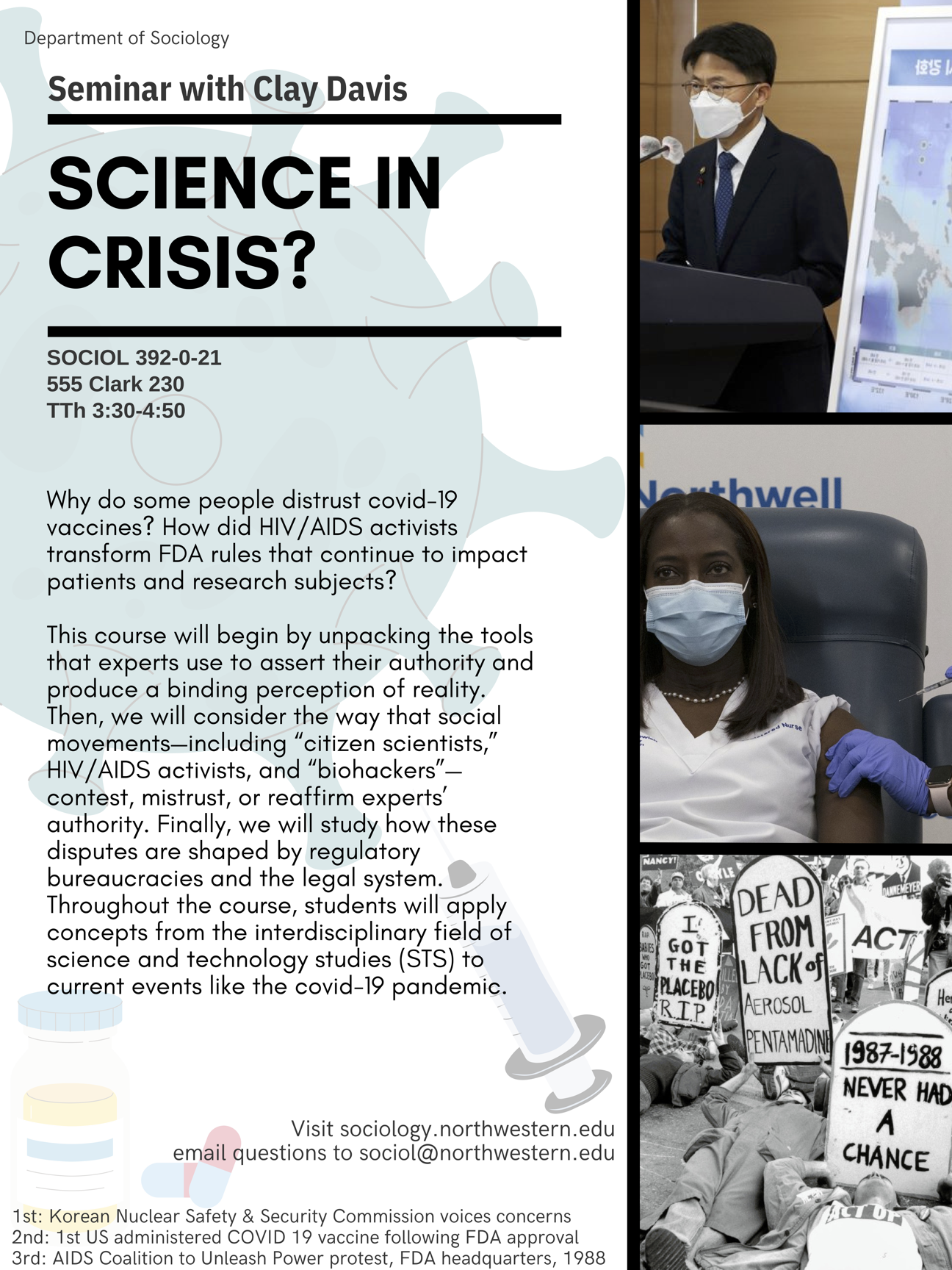Course description
The question posed in the title of this course contains a double meaning: First, how do scientists deal with epistemic crises that threaten their credibility? And second, how do scientists react in political, epidemiological, or other seemingly external crises that strain their methods and institutions? This course will begin to answer these questions by unpacking the tools that experts use to assert their authority and produce a binding perception of reality. Then, we will consider the way that social movements—including “citizen scientists,” HIV/AIDS activists, and “biohackers”—contest, mistrust, or reaffirm experts’ authority. Finally, we will study how these disputes are shaped by regulatory bureaucracies and the legal system. Throughout the course, students will apply concepts from the interdisciplinary field of science and technology studies (STS) to current events like the covid-19 pandemic. We will address pressing questions like: Why do some people distrust covid-19 vaccines? How did HIV/AIDS activists transform FDA rules that continue to impact patients and research subjects?
Syllabus preview
Module 1: The social construction of expertise
Readings
- Latour, Bruno . 1983. “Give Me a Laboratory and I Will Raise the World.” In Science Observed: Perspectives on the Social Study of Science, edited by Karin Knorr Cetina and Michael Mulkay, 141-70. London, UK: Sage.
- Gieryn, Thomas . 1983. “Boundary-Work and the Demarcation of Science from Non-Science: Strains and Interests in Professional Ideologies of Scientists.” American Sociological Review.
- Hilgartner, Stephen . 2000. Science on Stage. Stanford University Press.
- Parthasarathy, Shobita . 2021. “The AstraZeneca Vaccine Crisis in Europe Isn’t About Science at All.” Slate.
Description
Our first set of readings are classics the field of science & technology studies (STS). In “Give me a Laboratory and I will Raise the World,” Latour argues that even the laboratory is a site of social action, a place where political projects are shrunk to a manageable scale. He argues that scientists earn their credibility by allying with powerful institutions and actors. If, for Latour, the strength of science lies in its networks, for Hilgartner scientists are masters of “information control.” They conceal controversy on a “back stage” and present a united front to outsiders. This strategy is particularly necessary, Hilgartner argues, when scientists interface with regulators and public audiences who demand quick action and certainty. Gieryn finds that scientists demarcate themselves from non-scientists through “boundary work.” In the three cases he studies, the criteria that define science take different forms. The final assigned text is a contemporary case—Parthasarathy’s account of UK regulators’ attempt to make sense of uncertainty at the outset of the covid-19 pandemic. In their decision to temporarily pull Novavax from the market, UK regulators draw on each of the strategies described above.
